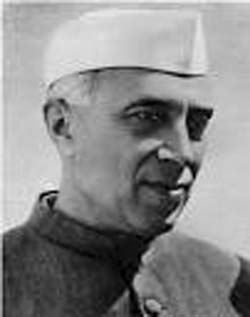Jawaharlal Nehru, on a number of occasions and in a number of ways, defined himself as a product of the Indian National Movement and all that it stood for. This implied among other things anti-imperialism, commitment to national sovereignty, and a measure of internationalism. In addition Nehru also acquired early in his political career a left-wing orientation to politics. All this he inherited from the national movement and practised, with some exceptions, during his long tenure as independent India’s Prime Minister. Volume 36 (second series) of the Selected Works of Jawaharlal Nehru covering the period December 1956-Fabruary 1957, is an important testing ground for some of these values that Nehru professed. This is an important period for two major political events of international significance that were only distantly related to India’s domestic politics: the Suez crisis and the Hungarian crisis. The two crises involved the major superpowers of the post-war world. The Suez question started with the nationalization of the Suez Canal by Egypt, followed by the formation of a military alliance between England and France, and the Anglo-French-Israeli attack on Egypt.
November 2006, volume 30, No 11

